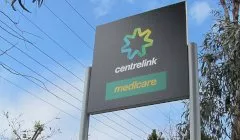Save
Tax traps flagged in first home buyers scheme
Some first home buyers are being encouraged to use a tax-effective strategy to maximise their deposit – but there’s a chance the ATO will come knocking.
Tax traps flagged in first home buyers scheme
Some first home buyers are being encouraged to use a tax-effective strategy to maximise their deposit – but there’s a chance the ATO will come knocking.

The First Home Super Saver Scheme (FHSS) enables individuals over 18 who have never owned a home to apply to release voluntary contributions from their super fund to buy their first home.
From 1 July 2018, individuals have been able to withdraw these voluntary contributions, along with the deemed earnings, for a deposit. Withdrawals are taxed at a marginal tax rate, less a 30 per cent offset.
You can read more about the first home super saver scheme here.
Fitzpatricks Private Wealth head of technical services Colin Lewis said the ATO has been approached to determine the legitimacy of a strategy that capitalises on the tax treatment of voluntary concessional contributions.

“One thing I think people need to be mindful of, and I know of advisers who have talked about doing this, is putting a concessional contribution and then sort of virtually immediately withdrawing it just to get the tax concession,” said Mr Lewis.
“Technically, to get a deduction for a contribution, you need to be making a contribution towards your retirement savings so if you are putting it in on day one and pulling it out on day two, there is that question about whether that it is a legitimate strategy so until we get a response from the ATO, I’d be cautious of doing that.
“That's not to say don’t put it in today and pull it out in a couple of months when you want to buy a house but today-and-tomorrow type scenarios, I'd be wary of at this point.”
More broadly, investors should also be cautious of the administrative complexity involved in using the FHSS.
For example, it can take 25 business days for the ATO to release funds to an investor, which can pose significant barriers to getting finance over the line with a lender.
“The administrative complexity is certainly the downside to the whole scheme and I think people need to be aware of how that works so they don’t get caught out,” said Mr Lewis.
“If you’re contributing to the scheme and you find a place on the weekend that you want to buy, you can’t turnaround and put a bid or deposit down if you haven’t already got a release of your money and getting that release can take 25 business days, which is five weeks, so you really [have] to plan in advance.
“You’ve got 12 months to find a place or you get penalised tax-wise, so I think it is the case of people may find it attractive because the numbers do stack up, although they are not significant by any stretch of the imagination, but nevertheless there is an advantage to doing it, so why not?”

Tax saving
$20,000 instant asset write-off extension welcomed, but calls for broader support grow
The Australian government's decision to extend the $20,000 instant asset write-off into the next financial year has been met with approval from business leaders. However, there are growing calls for ...Read more

Tax saving
The downsizer dividend: How targeted tax levers could unlock housing supply in Australia
A call by Raine & Horne to incentivise seniors to move to smaller homes has kicked off a wider policy conversation that reaches well beyond real estate. If designed well, a targeted package could ...Read more

Tax saving
Raine & Horne's bold move could unlock housing supply but what are the hidden risks
Raine & Horne’s call for targeted tax incentives to encourage empty nesters to ‘rightsize’ isn’t just another sector wish list; it’s a potential lever to free up family homes, ease rental ...Read more

Tax saving
From annual check-ups to always‑on: how modern portfolio reviews unlock after‑tax alpha
The era of once‑a‑year portfolio check‑ins is over. Continuous, tech‑enabled reviews now drive returns through tax efficiency, risk control and behavioural discipline—especially in a high‑rate ...Read more

Tax saving
Navigating tax laws for capital gains in 2023
The landscape of Australian tax laws surrounding capital gains is ever-changing, with 2023 being no exception. Read more

Tax saving
What you need to know about the tax implications of crypto
One million Aussies are now invested in crypto, but many have not thought about how these investments will affect them at tax time. Read more

Tax saving
Welfare overhaul could give recipients a leg-up
Australia’s Centrelink recipients who’ve been doing it tough are in for a potentially easier time if the federal government pursues ambitious reforms that could provide sturdier safety nets. Read more

Tax saving
Students should think twice before tapping into their super
Former students might want to think carefully before they look to take advantage of the federal government’s biggest first home buyer incentive. Read more

Tax saving
$20,000 instant asset write-off extension welcomed, but calls for broader support grow
The Australian government's decision to extend the $20,000 instant asset write-off into the next financial year has been met with approval from business leaders. However, there are growing calls for ...Read more

Tax saving
The downsizer dividend: How targeted tax levers could unlock housing supply in Australia
A call by Raine & Horne to incentivise seniors to move to smaller homes has kicked off a wider policy conversation that reaches well beyond real estate. If designed well, a targeted package could ...Read more

Tax saving
Raine & Horne's bold move could unlock housing supply but what are the hidden risks
Raine & Horne’s call for targeted tax incentives to encourage empty nesters to ‘rightsize’ isn’t just another sector wish list; it’s a potential lever to free up family homes, ease rental ...Read more

Tax saving
From annual check-ups to always‑on: how modern portfolio reviews unlock after‑tax alpha
The era of once‑a‑year portfolio check‑ins is over. Continuous, tech‑enabled reviews now drive returns through tax efficiency, risk control and behavioural discipline—especially in a high‑rate ...Read more

Tax saving
Navigating tax laws for capital gains in 2023
The landscape of Australian tax laws surrounding capital gains is ever-changing, with 2023 being no exception. Read more

Tax saving
What you need to know about the tax implications of crypto
One million Aussies are now invested in crypto, but many have not thought about how these investments will affect them at tax time. Read more

Tax saving
Welfare overhaul could give recipients a leg-up
Australia’s Centrelink recipients who’ve been doing it tough are in for a potentially easier time if the federal government pursues ambitious reforms that could provide sturdier safety nets. Read more

Tax saving
Students should think twice before tapping into their super
Former students might want to think carefully before they look to take advantage of the federal government’s biggest first home buyer incentive. Read more













